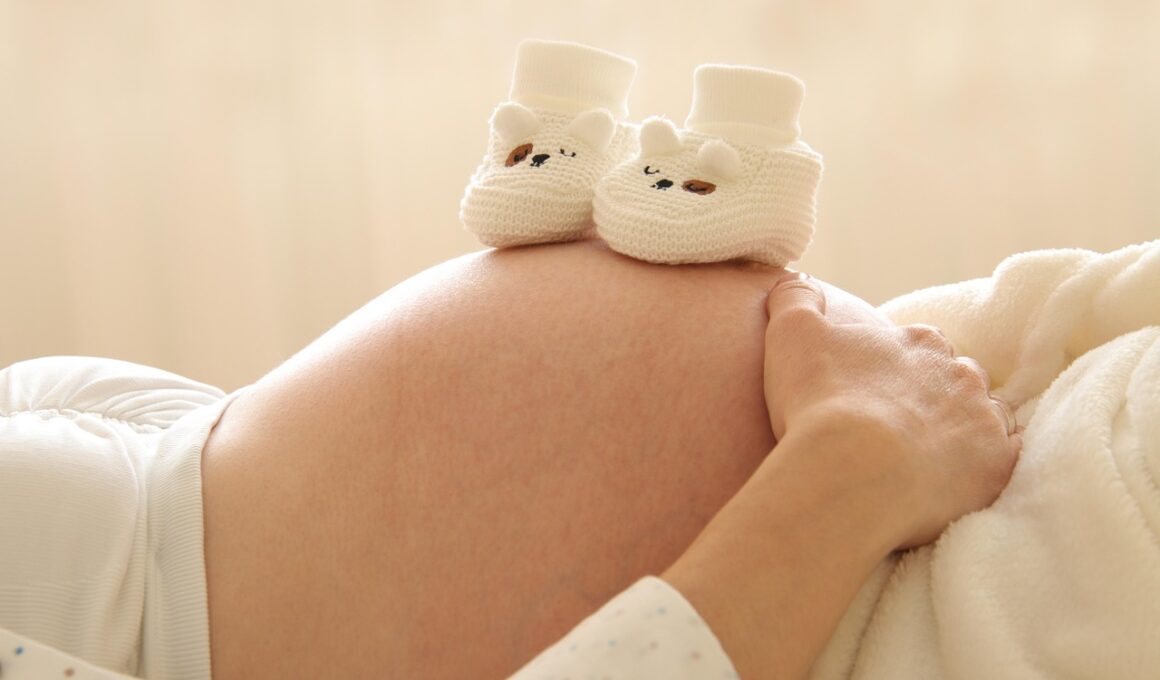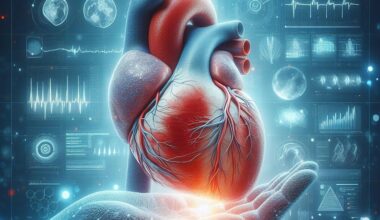Detox and Cleansing Do’s and Don’ts for Pregnant Women
Pregnancy is an important time when expecting mothers must prioritize their health. Detox and cleansing during this period can be tricky. While some women may feel the need for a detox, it is imperative to consider safety first. Every detox approach should be assessed for risks associated with maternal and fetal health. During pregnancy, certain cleansing diets may indeed harm fetal development. If tempted to start a detox regimen, consult your healthcare provider. Medical advice is essential as not all detox methods are safe for pregnancy. Many detox plans include severe calorie restrictions or untested supplements, potentially leading to nutritional deficiencies. An expectation of rapid weight loss is not suitable during this delicate time. Instead, focus on nutrition-rich foods and hydration. Healthy meals, full of vitamins and essential nutrients, support both the mother and fetus adequately. Foods rich in fiber, vitamins, and minerals should be the priority. Always include sources of lean protein, whole grains, fruits, and vegetables. Avoid things like caffeine and alcohol which may negatively affect pregnancy.
Understanding Safe Detox Options
Safe detox during pregnancy hinges on moderation and necessity. Avoid harsh cleanses or fasting techniques, which can deprive both mother and baby of essential nutrients. Instead of aggressive methods, consider gentle detox approaches. A typical example would be improving hydration levels. Increasing your water intake helps eliminate toxins naturally and ensures that vital nutrients are transported efficiently through the body. Another safe technique includes incorporating more whole foods into your diet. Opt for organic fruits and vegetables whenever possible. These foods are typically free from harmful pesticides that could impact fetal health. Also, check with your healthcare provider before using herbal remedies. Certain herbs can be detrimental during pregnancy, potentially leading to complications. The consumption of high-fiber foods may aid in digestion and overall health, and probiotics can offer a boost to gut health without risking pregnancy. Focus on gradual shifts in your eating habits rather than drastic changes that could disrupt your body. Always listen to your body’s cues, and consult with your doctor or a nutritionist for personalized advice that aligns with your pregnancy.
Maintaining a balanced diet over strict detox methods is key. Emphasis should be on nutrition rather than quick fixes. Whole foods contain vital nutrients that promote healthy fetal development. Creatively incorporating detox-friendly foods into your meals can be beneficial. For instance, leafy greens like kale and spinach are excellent choices as they are rich in iron, crucial for pregnant women. Moreover, fruits rich in antioxidants fight oxidative stress, further supporting both mother and pregnancy. Avocado, for its healthy fats, and berries, loaded with vitamins, make great additions. Supplementing these foods with healthy fats like nuts and seeds can provide energy to an expecting mother. Practicing mindful eating contributes to digestive health too, effectively reducing symptoms like bloating or nausea commonly experienced during pregnancy. While tackling cravings is also essential, moderation is key. Instead of indulging, seek healthier alternatives that satisfy your cravings without compromising nutritional integrity. Understanding your body and its changing needs enhances wellness during pregnancy, promoting a happier experience. Always note that food choices can impact mood, energy levels, and overall health.
Risks of Harmful Practices
Understanding the risks associated with harmful detox practices cannot be understated during pregnancy. Certain fad diets can lead to various complications. Restrictive diets may result in deficiencies not only affecting the mother but also compromising the baby’s health. Additionally, substances that are generally deemed safe may turn harmful during pregnancy. Many detox diets promote excessive consumption of laxatives, which may lead to dehydration. This scenario could have grave implications for both the mother and baby, such as fatigue, headaches, and potentially premature labor. Pregnancy requires an increased caloric intake, and sudden drops in calorie consumption can thwart infant growth. Always steer clear of detox plans marketed as quick weight-loss solutions, as they can exploit a mother’s vulnerabilities during this transformative phase. Each woman’s body reacts uniquely, making one-size-fits-all dieting dangerous. Remember to prioritize mental health; stress induced by a failed detox may affect an expecting mother’s well-being. Instead of toxins, focus your efforts on nourishing your body with nutrients and preparing it for a healthy delivery. Nurturing yourself aligns with excellent prenatal care.
Safe detox practices can also positively influence the birthing experience. Building an understanding of how food choices affect energy levels is crucial for expectant mothers. For instance, eating well before labor can provide the strength required. Consuming nutrient-dense meals rich in carbohydrates such as whole grains can fuel energy for labor. Meanwhile, foods high in omega-3 fatty acids can offer essential brain development support for the fetus. The importance of maintaining a strong immune system during pregnancy is often overlooked. Moreover, focusing on healthy detox also means alleviating illnesses, supporting skin health, and improving overall well-being. Pregnancy can be a whirlwind of changes; supporting your body through food is essential. Whole foods equipped with vitamins can bolster the immune system, allowing the body to fight off infections more effectively. While cleansing is often perceived negatively, consider it as an opportunity to develop better long-term nutritional habits. Always prioritize colorful and varied meals, inviting a spectrum of nutrients into your diet. Nurturing your body stands central to enhancing your overall health and can have profound effects on postpartum recovery.
Consultation is Key
Staying well-informed and diligent through consultation with healthcare practitioners is vital. Regular check-ins with an obstetrician or a registered dietitian can significantly enhance health throughout pregnancy. These professionals can assist in creating a personalized plan that incorporates your unique health needs, making suggestions tailored to your circumstances. Receiving nutritional counseling can help address misconceptions or unverified detox practices that could otherwise apply negative pressures. Parents are often inundated with advice and recommendations from various sources, making it easy to become confused. Therefore, remaining clear-headed and focusing on individualized needs is essential. Discuss detox goals openly to ensure they align with medical advice, receiving appropriate guidance for what’s safe during this transformative period. Avoid self-defining as an expert based on anecdotal evidence found online. Supported by professionals’ recommendations, mothers can feel empowered to make choices that positively reflect both their health and their baby’s health. Seeking expert opinions aids in distinguishing between myths and facts, ensuring that mothers make the best lifestyle choices. Ultimately, proper guidance instills confidence and supports an enriching pregnancy journey.
The conclusion about healthy detox methods places emphasis on personal well-being. Embracing a positive relationship with food can foster lasting habits that improve health post-pregnancy. Recognizing the differences between fads and genuinely healthy practices is essential. The goal of a detox during pregnancy should never stem from societal pressures but focus purely on well-being. Choose to listen to your body, understanding it always deserves nourishment over deprivation. React to your body’s needs, keep well-hydrated, and incorporate a variety of healthy foods. It is also crucial to monitor how your dietary changes positively influence your mood and energy levels. Make adjustments as necessary, including guidance from your healthcare providers. Ensure to embrace balance in meals, focusing on nutrient-dense options rather than restricting entire food groups. Positive experiences around food can create harmonious meal times. By trusting your instincts and leaning on your healthcare team, you can navigate this exciting journey while protecting maternal and fetal health. Ultimately, a well-balanced approach, emphasizing moderation and caring choices, leads to a healthier pregnancy experience.





